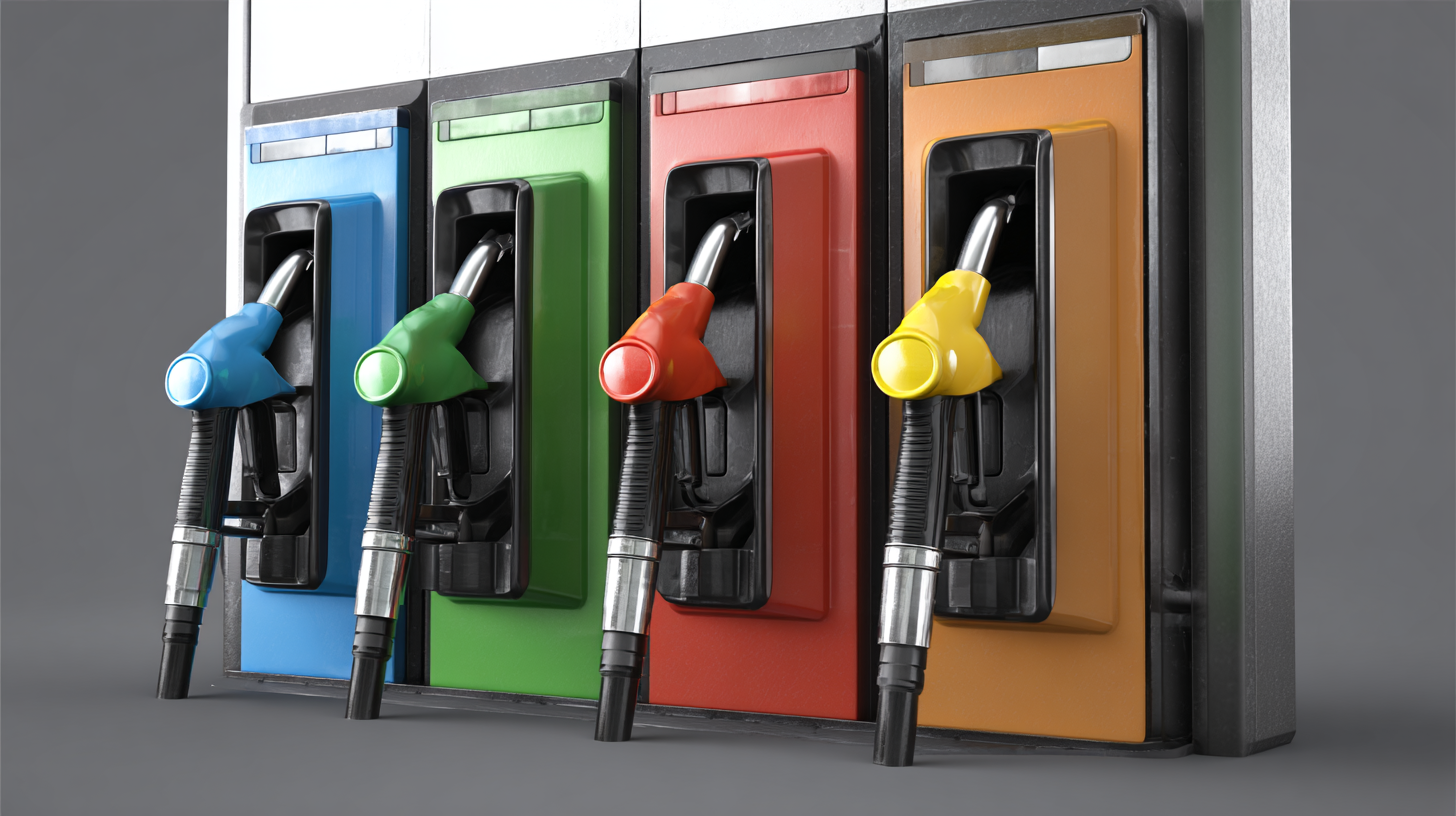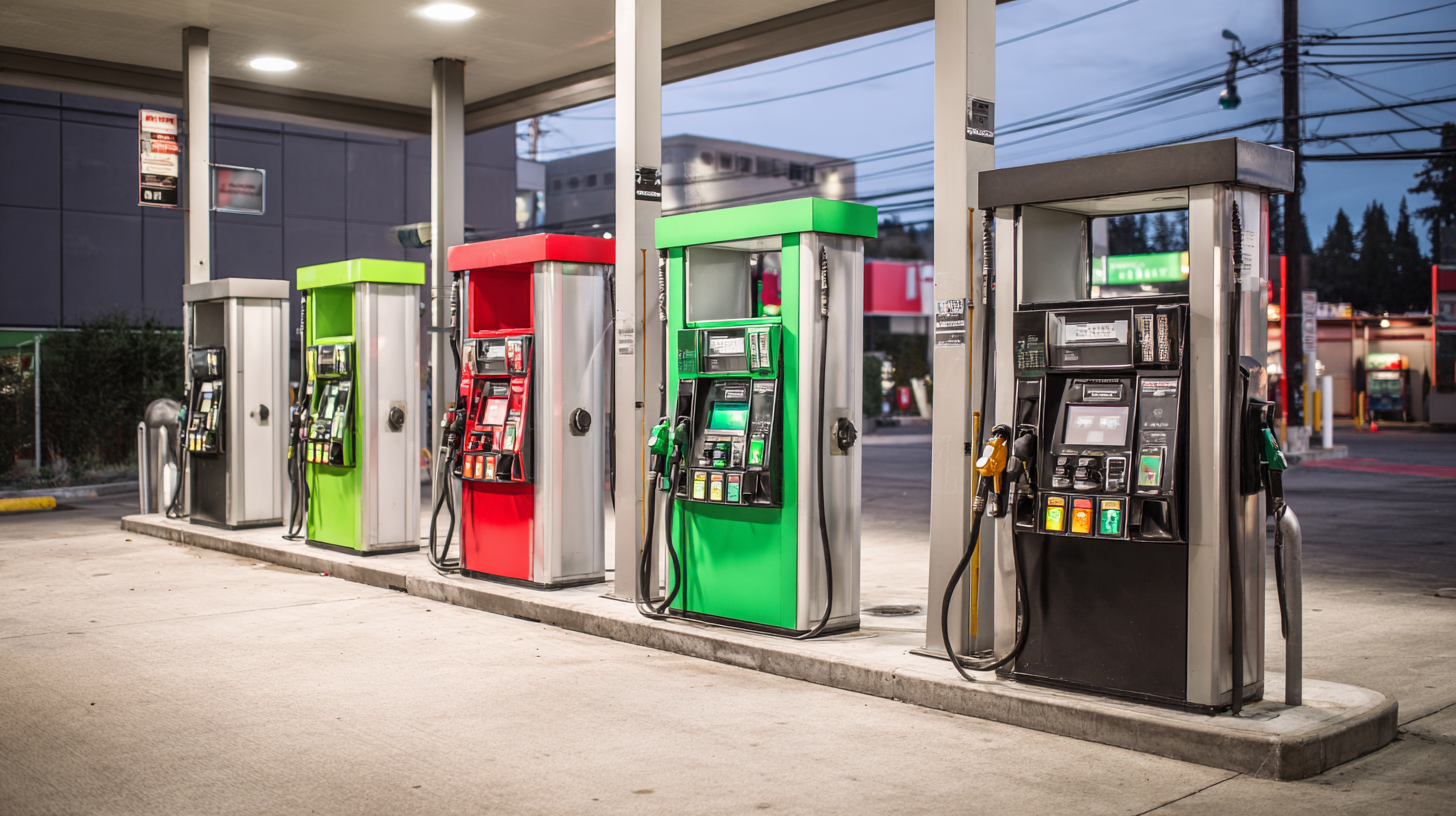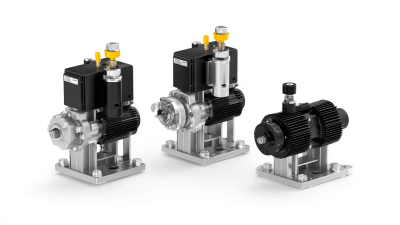How to Choose the Right Gas Pump for Your Business Needs
 Choosing the right gas pump for your business needs is crucial not only for operational efficiency but also for maximizing profitability. According to a report by the National Association of Convenience Stores, gas stations can generate up to 50% of their profits from fuel sales alone, making the selection of the appropriate gas pump a significant decision. With the rise of advanced technologies and environmental regulations, businesses are faced with various options that can impact both customer experience and compliance. The U.S. Department of Energy reported that in 2022, the demand for energy-efficient and environmentally friendly fuel solutions is at an all-time high. This landscape demands that business owners carefully assess their fuel dispensing systems to ensure they meet consumer expectations while also optimizing their bottom line. Understanding these dynamics is essential for any operator looking to thrive in the competitive fuel market.
Choosing the right gas pump for your business needs is crucial not only for operational efficiency but also for maximizing profitability. According to a report by the National Association of Convenience Stores, gas stations can generate up to 50% of their profits from fuel sales alone, making the selection of the appropriate gas pump a significant decision. With the rise of advanced technologies and environmental regulations, businesses are faced with various options that can impact both customer experience and compliance. The U.S. Department of Energy reported that in 2022, the demand for energy-efficient and environmentally friendly fuel solutions is at an all-time high. This landscape demands that business owners carefully assess their fuel dispensing systems to ensure they meet consumer expectations while also optimizing their bottom line. Understanding these dynamics is essential for any operator looking to thrive in the competitive fuel market.
Understanding Your Business Fuel Needs and Usage Patterns
When selecting a gas pump for your business, understanding your fuel needs and usage patterns is crucial. According to the U.S. Energy Information Administration, in 2021, commercial fuel consumption in the transportation sector reached approximately 26 billion gallons of diesel and 14 billion gallons of gasoline. This data highlights the necessity for businesses to analyze their consumption levels. For instance, companies with a high turnover of vehicles, such as transportation services, might benefit from a higher-capacity pump to meet their daily refueling requirements efficiently.
Moreover, the type of fuel your business primarily uses can significantly influence your gas pump selection. The American Petroleum Institute reports that the growth of alternative fuels, such as biodiesel and ethanol, has been on the rise, with biodiesel production totaling nearly 1.8 billion gallons in 2022. For businesses aiming to incorporate eco-friendly practices, investing in flexible gas pumps that accommodate various fuel types could enhance operational efficiency and sustainability efforts. Understanding these dynamics is essential for making an informed decision that aligns your fuel infrastructure with your business goals.
Evaluating Different Types of Gas Pumps: A Comprehensive Overview
When evaluating different types of gas pumps for your business needs, it's essential to consider various factors including flow rates, compatibility with fuel types, and the specific demands of your operation. Electric pumps, for instance, are widely used for their reliability and efficiency, suitable for both high and low fuel transfer volumes. On the other hand, manual pumps may be beneficial for businesses looking to control costs while still ensuring adequate performance.
Tips: Always assess the installation space and ensure that the chosen pump fits within it—sized appropriately to handle the expected volume of customers without disrupting service. Be mindful of local regulations and environmental standards as they may limit the types of pumps you can use.
Additionally, consider the future growth of your business. Investing in a pump that allows for scalability can save you money and hassle later on. It's also wise to research the brands and models available in the market. Look for pumps known for their durability and ease of maintenance as these qualities will greatly reduce long-term operational costs.

Key Features to Look for in a Business Gas Pump
When selecting the right gas pump for your business, there are several key features to consider that can greatly impact efficiency and customer satisfaction. First and foremost, reliability is crucial. Opt for pumps that are constructed with durable materials and come from reputable manufacturers, ensuring they can withstand heavy usage without frequent breakdowns. Additionally, consider the pump's flow rate; a higher flow rate can enhance customer experience by reducing wait times during peak hours.
Another important feature is the pump's compatibility with various payment systems. Nowadays, customers expect multiple payment options, including mobile payments and card readers. Ensuring that the gas pump you choose can integrate these technologies will cater to diverse customer preferences and streamline transactions. Moreover, investing in pumps equipped with advanced monitoring systems can provide valuable insights into fuel consumption and inventory levels, allowing for better management of your resources.
How to Choose the Right Gas Pump for Your Business Needs - Key Features to Look for in a Business Gas Pump
| Feature | Description | Importance |
|---|---|---|
| Flow Rate | The speed of fuel dispensation, usually measured in gallons per minute (GPM). | High flow rates improve customer service and reduce wait times. |
| Compatibility | Ensure the pump is compatible with your specific fuel types (e.g., gasoline, diesel). | Prevents operational issues and enhances safety. |
| Payment Options | Capabilities like credit/debit card processing, mobile payments, etc. | Increases customer convenience and can boost sales. |
| Durability | Quality of materials and construction affecting longevity. | Lowers maintenance costs and extends service life. |
| Ease of Use | User-friendly interface and operation instructions. | Enhances customer experience and reduces training time for staff. |
| Maintenance Requirements | Frequency and ease of required maintenance tasks. | Streamlined upkeep can reduce operational downtime. |
| Safety Features | Includes emergency shut-off valves, leak detectors, etc. | Critical for ensuring employee and customer safety. |
Budget Considerations: Balancing Cost and Quality in Your Purchase
When selecting a gas pump for your business, balancing cost and quality is critical to making a sound investment. While it can be tempting to go for the cheapest option available, it's important to consider the long-term implications. A lower initial price may come with hidden costs in maintenance and inefficiency. Investing in a high-quality pump may require a larger upfront expenditure, but it can yield significant returns in durability, performance, and reliability over time.
To effectively balance budget considerations, conduct thorough research on various models and manufacturers. Look for pumps that offer the best combination of features and warranties that align with your operational needs. Reviews from other businesses and industry experts can also provide valuable insights into which pumps offer the best value for money. By taking the time to evaluate both the ongoing operational costs and the quality of the pump, you can ensure that your investment will support your business's growth and efficiency for years to come.
Assessing Maintenance Requirements and Support for Gas Pumps
When selecting the right gas pump for your business, understanding the maintenance requirements is crucial. Regular maintenance ensures that the gas pump operates efficiently and safely, reducing downtime and potential service disruptions. It's important to assess the specifications of the gas pump in relation to your business operations to ensure that maintenance schedules align with your operational demands. For instance, if you're running a high-volume gas station, you may need a more robust pump that can handle increased wear and tear, necessitating more frequent inspections and servicing.
Moreover, support systems for maintenance play a significant role in the overall reliability of your gas pump. Establishing a partnership with a provider that offers comprehensive support services can significantly enhance the longevity and performance of your equipment. This includes having access to technical expertise for troubleshooting, as well as timely repairs which can mitigate risks associated with unexpected malfunctions. With the advent of advanced technologies like AI-powered systems in other industrial applications, the gas pump industry is also evolving. Embracing such innovations could lead to more insightful assessments of maintenance impacts, ultimately maximizing your operational efficiency while addressing any potential risks effectively.

Related Posts
-

Top Strategies for Enhancing Efficiency with Metering Pumps
-

How to Select the Right Diaphragm Pump for Your Industrial Needs
-

Unlocking Efficiency and Cost Savings with Advanced Fuel Transfer Pump Solutions
-

How to Choose the Right Air Operated Diaphragm Pump for Your Applications
-

Understanding the Benefits of Using Above Ground Diesel Storage Tanks in Various Industries
-

How to Choose the Right Fuel Transfer Tank with Pump for Your Needs